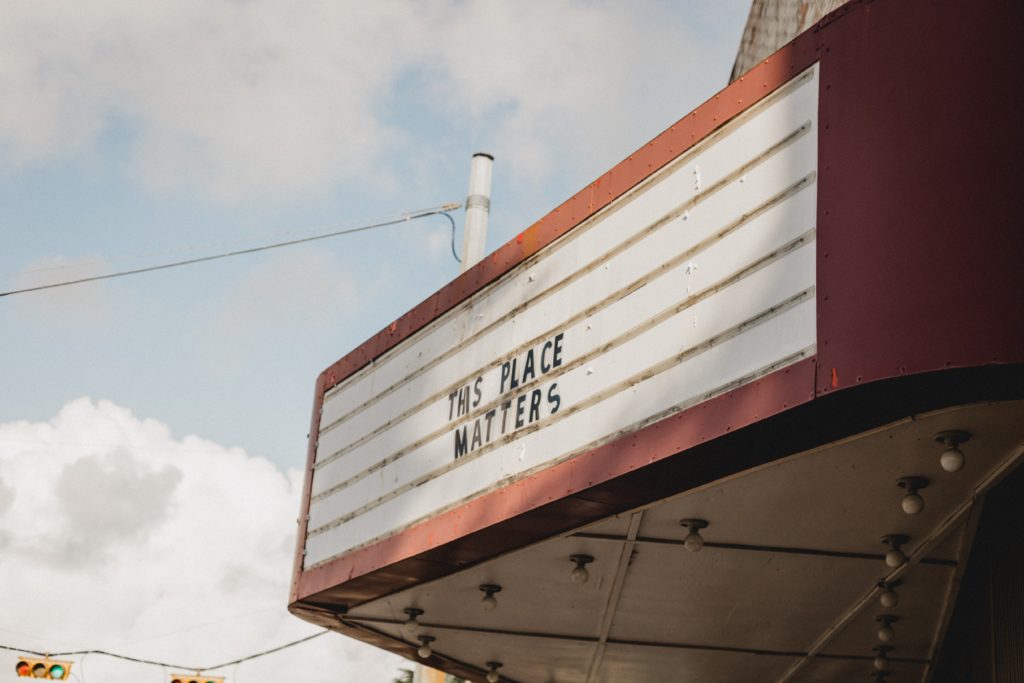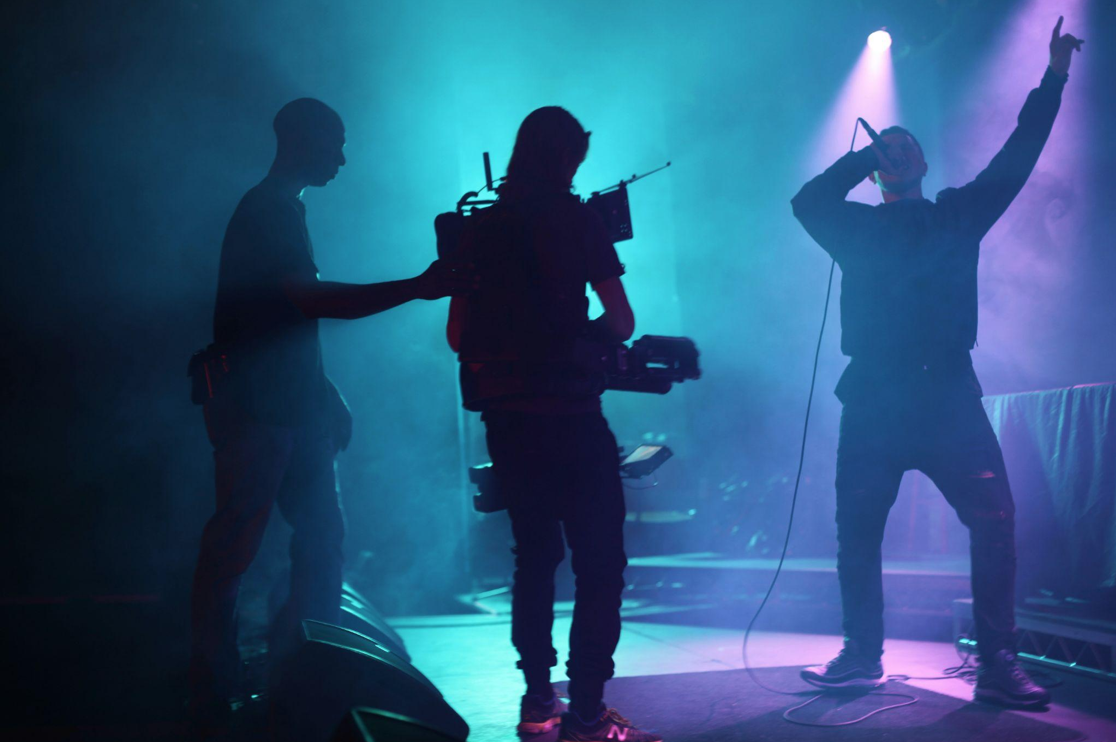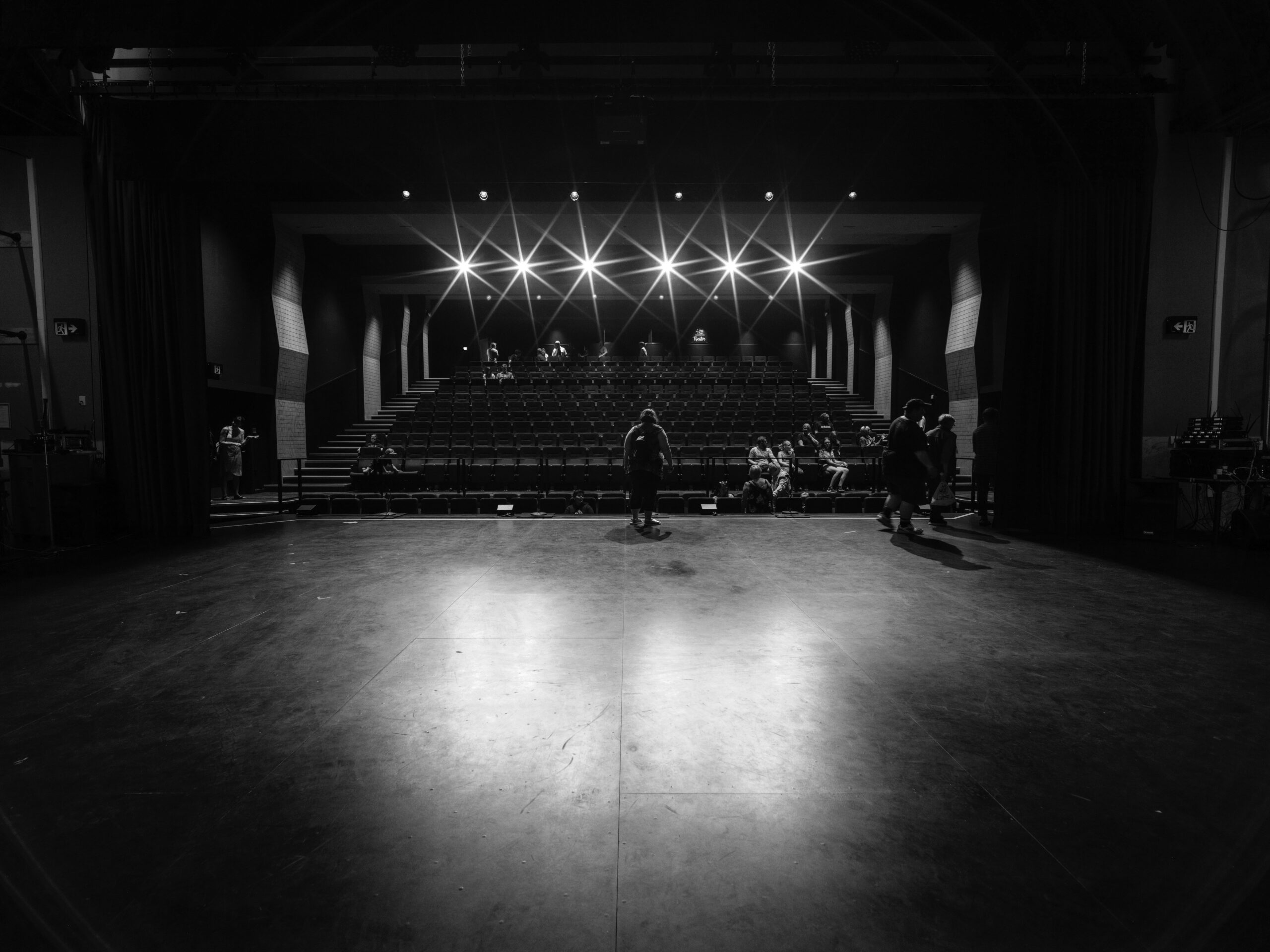
The fallout of the COVID-19 pandemic this past year has been economically devastating for nearly every industry and market, but it has hit the arts and entertainment sectors especially hard.1 The impacts of long-term lockdown and the resulting recession will stunt the entertainment industry for years to come.2 One market within the entertainment industry that has been especially upset, however, is live music.3 Due to the inability to properly practice social distancing in concert venues and the potential liability issues of hosting events that may result in the spread of COVID-19, many venues were one of the first businesses to close its doors in March 2020 and are likely to be one of the last to open.4 As a result, many small and independent venues have already shutdown permanently or are hanging on by a thread.5 These businesses, many located in expensive real estate areas, have lost essentially all revenue streams but are nevertheless responsible for rent, utilities, liquor licenses, and other overhead costs for buildings that have been empty for nearly a year.
Many venues have tried to raise funds to pay the bills but with little ability to have physical fundraisers and many individuals also experiencing negative economic impacts from the pandemic, these efforts are not enough to obviate the loss in revenue.6 According to the National Independent Venue Association (NIVA), a trade association that was founded in the beginning of the pandemic to lobby for federal assistance and provide emergency relief funds for independent venues,7 90% of independent venues associated with NIVA believe that they will be forced to permanently close by the end of the pandemic if adequate aid is not provided.8
As a result, independent venues across the country have been faced with a difficult decision: risk permanent closure waiting out the pandemic or give up their independence. A venue is considered independent when it is not a part of large ticketing conglomerates such as Live Nation and AEG.9 In the music industry, the status of being independent is worn as a badge of honor. These venues are viewed as creating immense cultural value to their surrounding areas and are celebrated for giving some of music’s most popular acts and bands their start.10 However, many independent venues across the country are facing permanent closure and, seeing no end to their economic plight in sight, have been forced to consider acquisition agreements with large corporate promoters and venture capital firms as a last resort.11
Those that can afford to have chosen to hold out for government assistance. The passage of the $900 billion COVID-19 relief stimulus package on December 27, 2020 gave remaining venues a new hope.12 While some were disappointed that the relief bill did not include liability protections—which would have allowed entertainment businesses to open their doors to the public with protections against subsequent claims from employees and attendees that they contracted COVID-19 from the business’ events13— many independent entertainment businesses rejoiced at the stimulus package’s inclusion of the Save Our Stages (“SOS”) Act.14 The SOS Act, introduced by Senators John Cornyn (R-TX) and Amy Klobuchar (D-MN) in July of 2020, establishes the Shuttered Venue Operators (“SVO”) grant program.15 This grant program, totaling $15 billion, will be administered by the Small Business Administration’s (“SBA”) Office of Disaster Assistance to struggling independent entertainment businesses.16 About two-thirds of the total grant money is expected to be allocated to concert venues.17
Grants provided under the SOS Act will be administered on a first-come, first-serve basis, provided that the venues meet the Act’s eligibility requirements.18 One disqualifying characteristic is if the venue is majority-owned or controlled by a publicly traded company.19 In other words, venues that have consented to acquisition by large corporate promoters or other public companies would not be able to benefit from the SOS Act.
Eligible businesses will receive the lesser of 45% of its gross earned revenue in 2019 or $10 million.20 In the event that funds remain after the initial grant period, a supplemental grant of up to 50% of the initial grant may be awarded to venues “experiencing 70% earned revenue loss when comparing the first quarter of 2021 with the first quarter of 2019.”21 The maximum total amount between the initial and supplemental grants received by a venue is capped at $10 million.22
To put these numbers into perspective, consider that NIVA represents over 3,000 independent venues23 and that there are likely many more that have not joined NIVA but may consider applying for the SOS program. Also keep in mind that while the primary recipients of the $15 billion program are concert venues, grants may be awarded to qualifying promoters, talent representatives, zoos, museums, and movie theaters.24 As of the time of this writing, the SBA is still in the process of setting up the SOS program and has yet to release an application, so estimating the number of interested applicants at this time is impossible.25 But with how highly anticipated and long-awaited the passage of the SOS Act has been over the last few months, the expected number of qualified applicants is high and the amount of time that the grant funds will last is unknown. With so many entertainment businesses in extreme need, the funds have the potential to run dry fast.
Apart from high demand, another issue posed by the SOS Act is that a recipient of the grant becomes ineligible to receive a Paycheck Protection Program (“PPP”) loan under the Economic Aid Act.26 Not only will struggling businesses have to choose which plan to apply to, but businesses may run the risk of being turned down from one form of aid and consequently missing out on the other if funding runs out. Additionally, even if a venue is eligible for the grant and applies early in the process, it will take time between now and when business begins receiving funds—time that some of these businesses do not have.27
Overall, the passage of the Save Our Stages Act is seen as a ray of hope for venues across the United States. It is uncertain, however, how it will ultimately pan out. Perhaps the SVO grant program will provide enough funds for venues to stay afloat until it is safe to open doors, but with even the most optimistic predictions suggesting that live venues will not return until the fall of 2021 at the earliest,28 the number of independent venues able to hold on long enough to survive this pandemic remains unclear.
Natalie Linn is a Second Year Law Student at the Benjamin N. Cardozo School of Law and a Staff Editor at the Cardozo Arts & Entertainment Law Journal. Natalie’s areas of interest include entertainment law and copyright.
- Culture shock: COVID-19 and the cultural and creative sectors, OECD (Sept. 7, 2020), https://www.oecd.org/coronavirus/policy-responses/culture-shock-covid-19-and-the-cultural-and-creative-sectors-08da9e0e/#fnotea0z2.
- David Bloom, Pandemic, Downturn To Cost Entertainment Industry $160 Billion In Growth Over 5 Years, Forbes (May 21, 2020, 7:47 PM), https://www.forbes.com/sites/dbloom/2020/05/21/entertainment-industry-160-billion-lost-growth-ampere-theaters-advertising-streaming/?sh=4761ea3c7d95.
- See Jeff Slate, Jeff Tweedy on Covid-19—and its Impact on Live Music, Wall Street Journal (Dec. 15, 2020, 3:00 PM), https://www.wsj.com/articles/jeff-tweedy-on-covid-19and-its-impact-on-live-music-11608062400.
- Claudia Rosenbaum, Concert Venues Are Reopening Across America. Could Lawsuits Follow?, Billboard (Jun. 16, 2020), https://www.billboard.com/articles/business/touring/9403602/concert-venues-reopening-america-lawsuits-liability.
- For an updating list of all of the venues that have permanently closed their doors during the pandemic, see Taylor Mims, Venues Closing Across America: An Updating List (And Why It Matters), Billboard (Sept. 18, 2020) https://www.billboard.com/articles/business/touring/9451748/venues-closing-coronavirus-america-list/.
- See Nathan Weinbender, Keep Music Live is a new Fundraising initiative aiming to protect Washington’s indie venues, Inlander (Oct. 16, 2020) https://www.inlander.com/spokane/keep-music-live-is-a-new-fundraising-initiative-aiming-to-protect-washingtons-indie-venues/Content?oid=20454978. See also SF Station Staff, These San Francisco Bay Area Music Venues Need Your Help to Survive, SF Station (Mar. 20, 2020) https://www.sfstation.com/2020/03/20/these-san-francisco-bay-area-music-venues-need-your-help-to-survive/; see also Chris Cashman, Keep Music Live: Sir Mix-a-Lot rallies to save Seattle music venues, King 5 (Oct 24, 2020) https://www.king5.com/article/entertainment/music/keep-music-live-sir-mix-a-lot-rallies-to-save-seattle-music-venues/281-dac028bb-85e6-41e2-8712-282d6db7f6a1.
- National Independent Venue Association, https://www.nivassoc.org/ (last visited Jan. 1, 2021).
- Gary Dinges, ‘The precipice of a mass collapse’: Independent music venues fear they’ll be forced to close forever, USA Today (Sept. 24, 2020, 11:39 AM), https://www.usatoday.com/story/entertainment/music/2020/09/24/independent-music-venues-fear-theyll-soon-forced-close-forever/5794606002/.
- Dan DeLuca, Venues weigh value of independence, The Philadelphia Inquirer, Nov. 8, 2020, at D5.
- Samantha Hissong, Spotify Donates $500,000 to U.S. Indie Music Venues, Rolling Stone (Dec. 1, 2020) https://www.rollingstone.com/pro/news/spotify-wrapped-donation-indie-music-venues-niva-1096447/.
- Marissa R. Moss, Financially Vulnerable, Independent Music Venues Worry Of Having To Sell, NPR (Aug. 27, 2020, 6:00 AM), https://www.npr.org/2020/08/27/906292770/financially-vulnerable-independent-music-venues-worry-of-having-to-sell.
- Ben Sisario and Emily Cochrane, Stimulus Offers $15 Billion in Relief for Struggling Arts Venues, The New York Times, https://www.nytimes.com/2020/12/21/arts/covid-stimulus-theaters-venues.html (last updated Dec. 24, 2020).
- Emily Cochrane, Congress Strikes Long-Sought Stimulus Deal to Provide $900 Billion in Aid, New York Times, https://www.nytimes.com/2020/12/20/us/politics/congress-stimulus-deal.html (last updated Jan. 6, 2021) (explaining how the Republican demand for liability protections for businesses was dropped as a result of a mutual agreement to get the stimulus package passed).
- The SOS Act is located in Section 324 of the Economic Aid to Hard-Hit Small Business, Nonprofits and Venues Act within the Consolidated Appropriations Act, 2021. William Ziegelbauer, Peter Carson and Bijal Vira, The Save Our States Act – Time for Eligible Businesses to Get Ready for Their Audition, Lexology (Jan. 11, 2021), https://www.lexology.com/library/detail.aspx?g=fe34a3e2-7bab-45df-8793-b929c84d5356.
- Ziegelbauer, Carson and Vira, supra note 14; Shuttered Venue Operators Grant, U.S. Small Business Administration, https://www.sba.gov/funding-programs/loans/coronavirus-relief-options/shuttered-venue-operators-grant (last visited Jan. 21, 2021).
- Frank Bruno, Randy Friedberg, Ilaria Maggioni, Katherine Todd, Winter COVID-19 Relief Bill: Overview of Keyy IP and Entertainment Provisions, JD Supra (Jan. 4, 2021), https://www.jdsupra.com/legalnews/winter-covid-19-relief-bill-overview-of-3097872/.
- Jem Aswad, Senator Amy Klobuchar Explains $15 Billion Save Our Stages Act, Variety (Dec. 21, 2020, 12:03 PM), https://variety.com/2020/music/news/senator-amy-klobuchar-15-billion-save-our-stages-act-stimulus-1234867911/ (discussing the expected allocation of the $15 billion for entertainment businesses). Other eligible businesses include zoos, movie theaters, and museums. See Rob Meiksins, “Save Our Stages” Provides a Lifeline for Nonprofit Museums and Theaters, Nonprofit Quarterly (Jan. 15, 2021), https://nonprofitquarterly.org/save-our-stages-provides-a-lifeline-for-nonprofit-museums-and-theaters/.
- Ziegelbauer, Carson and Vira, supra note 14. For an overview of eligibility requirements, disqualifying characteristics and permissible uses of the grants, see Christopher Rossi, SOS – Save Our Stages! COVID-19 Relief for Shuttered Venue Operators Is Coming Soon, JD Supra (Jan. 11, 2021), https://www.jdsupra.com/legalnews/sos-save-our-stages-covid-19-relief-for-4325387/.
- Rossi, supra note 18.
- James W. Kim, Michael S. Stanek and Christina S. Dumitrescu, COVID-19 Relief Bill: “Save Our Stages” Section 324 Grants and Unemployment Insurance Expansion, Lexology (Dec. 30, 2020), https://www.lexology.com/library/detail.aspx?g=cca6de55-a4d4-4ae2-b521-ed06051ac194.
- Save Our Stages Act, National Independent Venue Association, https://www.nivassoc.org/sos-act (last visited Jan. 15, 2021).
- Rossi, supra note 18; Ryan Borba, Building Back Live: The Stages of Save Our Stages, Pollstar (Jan. 18, 2021, 8:06 AM), https://www.pollstar.com/article/building-back-live-the-stages-of-save-our-stages-147156.
- What is NIVA (National Independent Venue Association)?, Save Our Stages, https://www.saveourstages.com/about-us (last visited Jan. 17, 2021).
- Meiksins, supra note 17.
- Taylor Mims, Save Our Stages Grants Aren’t Open Yet, But Here’s How Venues Can Get Ready, Billboard (Jan. 15, 2021), https://www.billboard.com/articles/business/9512414/save-our-stages-grants-how-venues-can-get-ready.
- William Ziegelbauer, Peter Carson, and Bijal N. Vira, The Save Our Stages Act – Time for Eligible Businesses to Get Ready for Their Audition (Part 2 of 2), National Law Rev. (Jan. 14, 2021), https://www.natlawreview.com/article/save-our-stages-act-time-eligible-businesses-to-get-ready-their-audition-part-2-2.
- According to NIVA’s Save Our Stages website, “it could take many weeks, even months for the funding to flow.” Save Our Stages, https://www.saveourstages.com/ (last visited Jan. 17, 2021).
- Jem Aswad, Dr. Fauci Says Concert Venues, Theaters Could Reopen in the Fall, ‘If Everything Goes Right’, Variety (Jan. 11, 2021, 9:46 AM), https://variety.com/2021/music/news/fauci-concert-venues-theaters-could-reopen-pandemic-1234882673/.



